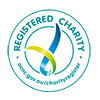For NAIDOC week we had the honour to interview Miki, Charmaine and Rhiana, a team of Aboriginal Health Workers at Prince of Wales Community Health. We learnt about their role and the importance of access to health care for the Aboriginal and Torres Strait Islander community.
Miki, Charmaine and Rhiana provide support to Aboriginal and Torres Strait Islander patients in the community by helping them to understand ways to manage their health care. They organise and take patients to appointments, provide information on and referral to other service, and yarn with them in their own home or at the La Perouse Aboriginal Community Health Centre.
A large component of their work is providing support to Aboriginal patients attending the POWH medical outreach clinics at the La Perouse Aboriginal Community Health Centre. These clinics include Diabetes, Cardiology, Geriatrics, Podiatry and Respiratory. They also provide a 48 hour follow up phone calls to Aboriginal patients who have been discharge from the POWH Emergency Department and to those with chronic disease who have been discharged from POWH.
In addition, Miki, Charmaine and Rhiana coordinate and support a number of land and water based exercise programs (outside of COVID) at NCIE, Daceyville PCYC AND Kooloora Community Centre as well as run training programs for community health staff and organise special celebratory events for the community.
NAIDOC provides a great opportunity to celebrate and recognise the history, culture and achievement of Aboriginal and Torres Strait Islander people. This year Miki, Charmaine and Rhiana have organised a day of activities for the local community at La Perouse Aboriginal Community Health Centre and are facilitating education session for community health staff and the POW Executive at the Catherine Hayes building all week starting Monday 4 July.
With this year’s theme, the sessions will be continuing to challenge those who attend to think outside of their own personal values and belief systems and ask them to put themselves in the shoes of an Aboriginal and/or Torres Strait Islander person, to help build on empathy and respect when engaging, not just with clients but also with Aboriginal and/ or Torres Strait Islander staff, and as always outside of the work environment in their everyday lives. The aim is to create discussion, help plant the seeds for change, and empower everyone to “GET UP, STAND UP, SHOW UP” because moving forward takes everyone.
Q1: What is your role and what does your day-to-day look like:
Charmaine: We’re all Aboriginal Health Workers. I support different clinics that are happening at our Centre including the Respiratory Clinic, Heart Clinic and the Stop Smoking program. I also run two exercise groups one land based and one waves program both at the NCIE Fitness Centre (National Centre of Indigenous Excellence). We also run support numerous exercise programs (outside of covid) NCIE x 2 , Daceyville PCYC and Kooloora Community Centre.
Miki: My day-to-day is different everyday. No two days are ever the same. One day I may be running clinics, another day I could be running exercise programs. Sometimes I do social support for people over 55 and I also do care coordination. I have also been working on building a profile about our department at the Prince of Wales Hospital. A lot of people aren’t aware that we are in the Catherine Hayes building. I work with the Hospital with obtaining patient experience stories as well.
Rhiana: Things have been quite different around here during COVID. Before COVID, all our programs were running and until the restrictions are lifted, we’ll be able to run those again. We do quite a lot of behind the scenes work with our manager, Michelle to help fine tune the programs were offer to the community. One program we are working on is the Healthy Eating Program which helps educate the community about healthy eating and maintaining an active lifestyle. We also will be completing our certifications to become fitness instructors to offer advice and support.
Q2: What do you enjoy about your role?
Miki: Making connections with the families and building trust with the community. We become part of everyone’s lives.
Charmaine: I love working with my people generally to make sure they have a connection to better health care. Today we had an Elder come in who has dementia and was feeling unwell so I made him a cup of tea and gave him something to eat which made him feel a lot better. Then I contacted his family to let them know he was here and I arranged to have him dropped home so he could get home safe. It’s all about earning the trust and respect of our people.
Rhiana: I enjoy the autonomy of each day, each day is different. I enjoy making a difference in the community.
Miki, Rhiana, and Charmaine: We also enjoy educating and supporting the POWH staff around Aboriginal health needs.
Q3: Why is Aboriginal and Torres Strait Islander health care important?
Rhiana: It’s to improve the health and the equality of the community. It’s about closing the gap with having the access to the bare necessities of health care. It’s also about helping our community by educating them about healthcare.
Miki: The access and support we give is tailored to the community as an individual and as a whole family unit.
Charmaine: Aboriginal and Torres Strait Islander people don’t have a long life expectancy compared to non-Aboriginal and Torres Strait Islander people. This is due to a number of factors such as colonisation and trauma. It’s about breaking down barries and discrimination to create accessibility of health care to Aboriginal and Torres Strait Islander communities.

